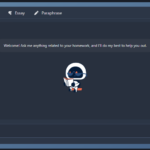You've probably heard the buzz about AI revolutionizing SEO reporting. But what does it really mean for you? It's not just hype, it's a game-changer.
With AI, you can analyze and interpret data like never before, making your SEO strategies more effective.
This article will explore how AI is shaking up SEO reporting, the key AI tools you should know, and what the future holds.
So buckle up, you're in for an enlightening ride!
Understanding AI in SEO Analysis
To fully grasp how AI is transforming SEO reporting, you've got to understand the role of AI in SEO analysis. AI, or artificial intelligence, is a game-changer in the world of SEO. It's not just about keywords and backlinks anymore. AI's role in SEO analysis has to do with its ability to analyze vast amounts of data quickly and accurately. This allows for a more in-depth understanding of user behavior, search patterns, and website performance.
You might be wondering, how does AI do this? Well, AI uses machine learning algorithms to analyze data. These algorithms can identify patterns and trends that humans might miss. For example, it can determine what type of content is most effective at driving traffic, or what time of day users are most active. This kind of information is invaluable when it comes to optimizing your website for search engines.
But that's not all. AI also plays a crucial role in predicting future trends. It can analyze current data and use that information to predict what might happen in the future. This can help you stay ahead of the curve and adapt your SEO strategy accordingly.
In terms of SEO reporting, AI can generate reports that are more detailed and accurate than ever before. These reports can provide insights into your website's performance, user behavior, and SEO strategy. This can help you make informed decisions and improve your website's visibility online.
Revolution of SEO Reporting Through AI
While you've now got a grasp on how AI is crucial in SEO analysis, you might be wondering how exactly it's shaking up SEO reporting. Simply put, AI is transforming the way SEO reporting is done, making it faster, more accurate, and more insightful.
In the past, SEO reporting was a manual and time-consuming process. You'd have to sift through mountains of data, figuring out what was relevant and what wasn't. Not to mention, the data you were dealing with was often outdated by the time you got your hands on it.
Now, AI is changing all of that. Advanced machine learning algorithms can analyze massive amounts of data in real time. They can identify trends and patterns that would have been impossible for a human to spot. And they can do it all in a fraction of the time it would take you to do the same work manually.
And it's not just about speed and efficiency. AI can also provide deeper insights into your SEO performance. It can predict future trends based on historical data, helping you stay one step ahead of the competition. It can also help you understand the behavior of your audience better, allowing you to tailor your SEO strategy to their needs and preferences.
Key AI SEO Tools and Their Roles
Often, you'll find that certain AI tools are indispensable in revolutionizing your SEO reporting process. These tools, powered by artificial intelligence, are designed to streamline your SEO strategies, offering precision and efficiency that's hard to match.
One such tool is BrightEdge, a platform that uses AI to provide real-time SEO recommendations. It analyzes your website data and offers actionable insights, helping you optimize your content and improve your search engine ranking. From keyword research to backlink analysis, BrightEdge has got you covered.
Next, there's Market Brew, another AI-powered tool known for its predictive modeling. With Market Brew, you can simulate search engine behavior and adjust your SEO strategies accordingly. It's like having a crystal ball that reveals how changes on your site will affect your SEO before you make them.
Then you have CanIRank, an AI SEO tool that identifies what your website needs to rank higher in search results. It offers personalized advice and prioritizes tasks based on their potential impact on your website's performance.
Let's not forget about WordLift, which uses AI to create structured data, making your content more discoverable and understandable to search engines. It helps you create rich, SEO-friendly content that drives traffic and boosts user engagement.
Lastly, there's PaveAI, which turns your Google Analytics data into actionable SEO insights using AI. It simplifies data analysis, providing you with easy-to-understand reports that can guide your SEO strategy.
These AI tools play crucial roles in SEO reporting, making it easier for you to understand and improve your website's performance in the competitive digital landscape.
Enhancing SEO Reporting With AI
Even though you may already use some SEO tools, it's crucial to understand how AI can significantly enhance your SEO reporting process.
AI boosts SEO reporting by providing sharper, more accurate data analysis. It sifts through vast amounts of data in record time, identifying patterns and trends that would be nearly impossible to discern manually. This means you can make more informed decisions, faster.
AI also automates several SEO reporting tasks, freeing up your time for other critical tasks. It can generate regular reports, highlight key metrics, and even predict future trends based on historical data. So, you're not just reacting to what's happening now, but you're also preparing for what's to come.
But it's not just about speed and automation. AI can offer insights that are truly tailored to your business. It can analyze your specific audience, understand what they're looking for and how they engage with your website. This level of personalization can give you a competitive edge, as you can optimize your site to meet your audience's exact needs.
Finally, AI empowers you to measure the impact of your SEO strategies more accurately. It can track a wide range of metrics, from traffic and bounce rate to conversion and customer satisfaction. This gives you a comprehensive view of your performance, helping you identify which strategies are working and which ones need improvement.
In a nutshell, incorporating AI into your SEO reporting process can provide you with more precise, personalized, and proactive insights. And that's a game-changer in today's competitive digital landscape.
Case Studies of AI in SEO Reporting
Now, let's dive into some real-world examples of how AI is transforming SEO reporting in various businesses.
Consider the case of a well-known eCommerce company. They've been struggling with data-driven decision-making due to the sheer volume of SEO data they have. By integrating AI into their SEO reporting process, they've been able to automate data collection and analysis, turning mountains of data into clear, actionable insights. This hasn't only saved them significant time, but also improved their SEO strategy and subsequently, their online visibility.
Take another example of a news media company. They're dealing with rapidly changing trends and have to constantly update their content strategy. AI has helped them immensely by predicting upcoming SEO trends based on historical data and current signals. They're now able to adapt their strategy faster and more accurately, ensuring they stay ahead in their game.
Finally, think about a small local business trying to make a mark online. They don't have the resources for a dedicated SEO team. For them, AI-powered SEO tools are a godsend. These tools provide them with comprehensive SEO reports, competitor analysis, and recommendations for improvement. As a result, they've seen an increase in online traffic and sales.
Future Predictions for AI in SEO Reporting
Let's delve into how AI might further revolutionize SEO reporting in the future. Today, AI is already making strides in the SEO industry, but you can expect even bigger changes down the line. The technology's ability to learn, adapt, and predict is likely to transform how SEO reports are prepared and analyzed.
Tomorrow's AI could automate the entire SEO reporting process, cutting down the time it takes to generate and analyze reports. It may even provide real-time data analysis, giving you valuable insights in an instant. You won't have to spend hours poring over data – AI will do it all for you.
Next, imagine an AI tool that doesn't just analyze data, but also predicts future trends. It might be able to anticipate changes in search engine algorithms or web user habits, allowing you to adapt your SEO strategy proactively. It's not a pipe dream – it's a distinct possibility.
AI is also likely to become more user-friendly, with simpler interfaces and easier-to-understand reports. You won't need a degree in data science to reap the benefits of AI in SEO reporting.
Finally, AI could revolutionize the accuracy of SEO reporting. By learning from past data and adapting to new information, AI can reduce the margin of error and provide more accurate, reliable reports.
The future of AI in SEO reporting is exciting, isn't it? It's filled with potential and promises to make the often daunting task of SEO reporting easier, faster, and more precise. So, keep an eye out for these advancements as they may be closer than you think.
Frequently Asked Questions
What Is the History and Evolution of AI in Technology and How Does It Correlate With Seo?
AI's history in technology has evolved considerably. It started with simple tasks, now it's mastering complex ones, like SEO.
You see, AI's ability to analyze and interpret data patterns is unmatched. This helps in understanding user behavior, improving keyword research, and optimizing content.
As AI improves, so does SEO strategy. It's a correlation that's reshaping the digital marketing landscape, making AI an essential tool for successful SEO reporting.
How Does AI Impact Other Areas of Digital Marketing Apart From Seo?
AI impacts many areas of digital marketing apart from SEO. It's altering how you engage with customers by personalizing content and enhancing user experience. AI also helps you analyze customer behavior and predict future trends.
With AI, you can automate your email marketing campaigns and social media posts, saving you time and effort. It's transforming digital advertising too, by optimizing your ads for better results.
What Are the Potential Risks or Drawbacks of Using AI in SEO Reporting?
While AI can enhance SEO reporting, it's not without potential risks. You might face issues like data privacy concerns, since AI algorithms gather and analyze massive amounts of data.
Additionally, there's a risk of over-reliance on AI, leading to a lack of human oversight. Misinterpretations could occur as AI mightn't fully grasp the context or nuances.
Lastly, there's always the fear of AI making mistakes that humans wouldn't, leading to incorrect SEO strategies.
How Can Small Businesses With Limited Resources Incorporate AI Into Their SEO Strategies?
As a small business, you can incorporate AI into your SEO strategies even with limited resources. Start by utilizing free or low-cost AI tools available online. These can help optimize your website's content, improve keyword usage, and analyze web traffic patterns.
You don't need a huge budget; just be smart about where you invest your time and energy. Remember, it's all about improving your site's visibility and driving more traffic.
Are There Any Ethical Concerns or Debates Related to the Use of AI in SEO Reporting?
Yes, there are ethical concerns around AI in SEO reporting.
You might worry about data privacy, as AI requires vast amounts of data to function effectively.
There's also the risk of AI being misused to manipulate search results dishonestly.
It's crucial that you're aware of these issues and use AI responsibly in your SEO efforts.
Transparency and respect for users' privacy should be your guiding principles when implementing AI in SEO reporting.
Conclusion
So, you see, AI is radically transforming SEO reporting. Its ability to analyze vast amounts of data, predict trends, and provide actionable insights is truly game-changing.
With AI SEO tools, your reporting can be more accurate and efficient. And as case studies show, it's already making a big impact.
The future? Well, we're betting AI's role in SEO reporting is only going to get bigger and bolder.















